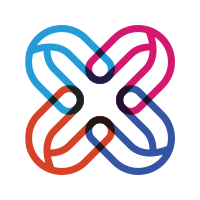Beyond Patient Care: A Look into Nonclinical Healthcare Careers
The field of healthcare is often associated with direct patient care, such as doctors, nurses, and other medical professionals. However, the healthcare industry offers a diverse range of fulfilling career options beyond the traditional roles. These nonclinical healthcare careers play a critical role in supporting patient care, ensuring efficient operations, and driving innovation within the healthcare system. In this article, we will explore some of these nonclinical healthcare careers that often go unnoticed, shedding light on the valuable contributions they make while offering alternative career paths for those interested in the industry.
1. Health Administrator:
Health administrators handle the management and coordination of healthcare facilities, including hospitals, clinics, and healthcare organizations. They are responsible for overseeing finances, operations, staffing, and regulatory compliance. A career in healthcare administration offers a unique opportunity to contribute to the industry’s advancement by developing policies, implementing quality improvement initiatives, and ensuring the smooth functioning of healthcare systems.
2. Medical Biller and Coder:
Medical billers and coders play a crucial role in ensuring accurate recording and billing of medical services. They translate medical diagnoses, treatments, and procedures into standardized codes to facilitate insurance claims and billing processes. This profession requires attention to detail, knowledge of medical terminology, and an understanding of insurance procedures. A career as a medical biller and coder offers steady job prospects and opportunities to specialize in various healthcare settings.
3. Health Information Technician:
Health information technicians manage and maintain patients’ medical records, ensuring they are accurate, complete, and secure. They organize and analyze patient data, manage electronic health record systems, and ensure compliance with privacy regulations. As healthcare organizations increasingly transition to digital records, the demand for health information technicians continues to rise. This profession combines technology, organizational skills, and a commitment to maintaining data integrity.
4. Healthcare IT Specialist:
With the growing reliance on technology in healthcare, healthcare IT specialists are becoming indispensable. These professionals oversee the implementation, maintenance, and security of healthcare information systems. They troubleshoot technical issues, train staff on software usage, and ensure compliance with data privacy regulations. A career as a healthcare IT specialist requires a strong background in technology, problem-solving skills, and the ability to adapt to ever-evolving digital healthcare solutions.
5. Healthcare Consultant:
Healthcare consultants are experts in their respective fields, providing guidance and strategic advice to healthcare organizations. They help assess and improve patient care, operational efficiency, and financial performance. With a deep understanding of the healthcare industry trends and regulations, consultants play a critical role in driving innovation, streamlining processes, and improving patient outcomes.
SEO-Friendly:
To make this article SEO-friendly, we should incorporate relevant keywords and phrases that potential readers may search for. Some keywords that are relevant to this topic include: nonclinical healthcare careers, healthcare administration, medical billing and coding, health information technician, healthcare IT specialist, and healthcare consulting. By naturally integrating these keywords in headings, subheadings, and throughout the article, it becomes more discoverable by search engines, increasing its reach and visibility.
Conclusion:
The healthcare industry provides a wide array of nonclinical career opportunities that are equally fulfilling and impactful. Exploring these nonclinical roles opens doors to exciting careers that contribute to improving patient care, streamlining operations, and advancing healthcare systems. Whether you have a passion for technology, organization, data management, or strategic planning, consider venturing beyond traditional patient care and exploring the nonclinical side of healthcare.






No Comments
Leave a comment Cancel